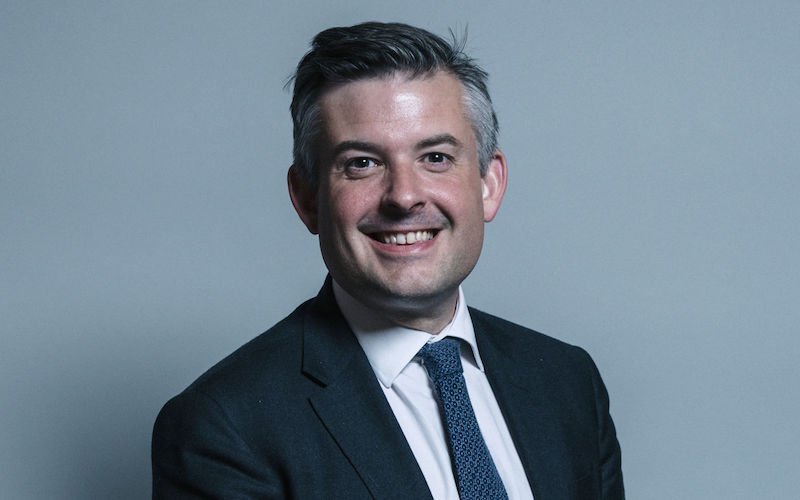![]() By Matt Banks, Jack Francklin and Matt Verri
By Matt Banks, Jack Francklin and Matt Verri
November 17 2019, 18.00
Follow @SW_Londoner
Figures released this week revealed hospital performance in England in October was at its worst level on record, meaning the NHS looks set to once again be a crucial topic of debate ahead of December’s General Election.
While party manifestos are yet to be officially released, all of the major parties are likely to pledge to increase the NHS budget, but key differences on funding and policy ideas could prove crucial.
We look at the potential NHS policies of each party, and the impact these would have on voters in south west London.
Brexit Party on the NHS
Before the referendum, the Leave EU campaign said that £350m was sent to the EU every week, and that money should be used to fund the NHS instead.
The Brexit Party’s website pledges to “invest in health and social care” but does not provide any information on how they wish to do so.
Leader Nigel Farage did speak about the issue in May, denying wanting to replace the NHS with private insurance, but did say insurers could “take the burden off the NHS”.
He added: “If I was encouraged to opt out of the system, to relieve the burden on the health service, I would do so gleefully.”
Nigel Farage’s Brexit Party are not releasing a manifesto, instead they are producing a “contract with the people”.
The Brexit Party’s policy stance should become clearer when they release this “contract”.
Conservatives on the NHS
The Conservatives have pledged to provide £20.5billion of funding for the NHS in England by 2023-24, with this funding to be coupled with a structural reform of the health service.
This includes a focus on new facilities, with £2.7bn for six new hospitals and plans for 34 more.
By 2024-25, the Tories plan to have introduced 6,000 more GPs in England and 6,000 more nurses, physiotherapists and pharmacists in surgeries.
The party has also signalled its intention to devote more attention to mental health, particularly in schools.
In an attempt to alleviate pressure on the NHS, this focus will come on early intervention strategies by encouraging sports participation and healthy lifestyles.
The Tories also intend to implement broader policy ideas, developing a longer-term social care plan with support from across the parties.
Green Party on the NHS
While health and social care is not their highest priority this election campaign, the Green Party have still made some bold pledges to voters.
The Greens wish to expand the NHS provision so it includes dentistry, prescriptions and mental health treatment.
They want the NHS to be publicly funded without involvement from private sector investment through the introduction of the NHS Reinstatement Act.
Spokesperson Larrie Sanders also wants to make mental health a higher priority.
The party intends to do this by increasing funding and introducing mental health awareness training within the public sector as part of their promotion of the topic.
More funding for social care for the elderly is also on the agenda.
The party wants to bring health and social services under one budget to make multiple types of service more accessible, whilst providing a cash injection to help people’s access to GPs and staff pay.
Labour on the NHS
The party have announced they plan to increase the NHS budget by £26bn by 2023-2024 and one of their main focuses is to cut waiting times and boost mental health services.
The shadow health secretary Jonathan Ashworth and shadow health minister Barbara Keeley are key drivers behind policy.

The increase in money diverted towards the NHS would mean the Department of Health’s annual budget would rise by £40 billion in cash over the next five years, were Labour to come into government after the election.
The Labour Party would fund this increase in NHS funding through increasing tax levies placed on big corporations.
They also want to increase training places for GPs from 3,000 to 5,000 while also scrapping hospital parking charges in England.
Labour plan to make prescriptions free and install a new state-run pharmaceutical company to make drugs available at affordable prices for all patients.
Liberal Democrats on the NHS
The Liberal Democrats have labeled themselves as the ‘stop Brexit party’ and so it is easy to think that their main concern is not dealing with the NHS.
However, they say that by revoking article 50, they will protect NHS funding, staff and services.
Furthermore, they have promised to improve access to GP’s and place a 1p rise in income tax to spend on health and social care with a focus on mental health, public health and staff shortages.
They have made mental health an integral part of their health policy, pledging to transform mental health support, giving it parity with physical health and ending long waits for treatment.
They plan to provide funding to train more mental health professionals and co-locate them with GP’s, at police, at A&E and in prisons.
They have also promised to implement a strategy to end childhood obesity.
What does this mean for south west London?
In September, it the Conservatives announced that they would make hundreds of millions of available for Epsom and St Helier University Hospitals NHS Trust as part of a £2.7bn boost shared between six trusts.
This would represent the largest investment in St Helier University Hospital since it was built 80 years ago.
The result of December’s election will therefore be crucial to the future funding of the hospital and its ability to function for patients.
Chief executive of the Trust Daniel Elkeles said: “This is incredible news for our patients and staff, and will be of huge benefit to our local communities.
“For anyone who has been to Epsom or St Helier Hospitals recently, it is clear to see that our buildings are just not up to scratch for twenty-first century healthcare and our way of working at the moment is not sustainable forever.
“This investment will mean that, instead of facing an uncertain future, our acute hospital services can be retained and continue to thrive in our local area.”
The Twickenham constituency is currently held by the Lib Dems, but with Sir Vince Cable stepping down, Conservative candidate Isobel Grant will hope to pip Sir Cable’s replacement Munira Wilson to install Conservative NHS policies.
If the Lib Dems are successful however, it is likely that Ms Wilson will push for NHS funding having worked for the organisation in the past.




